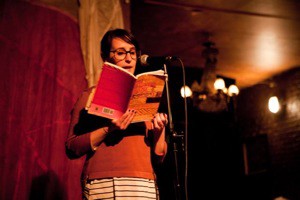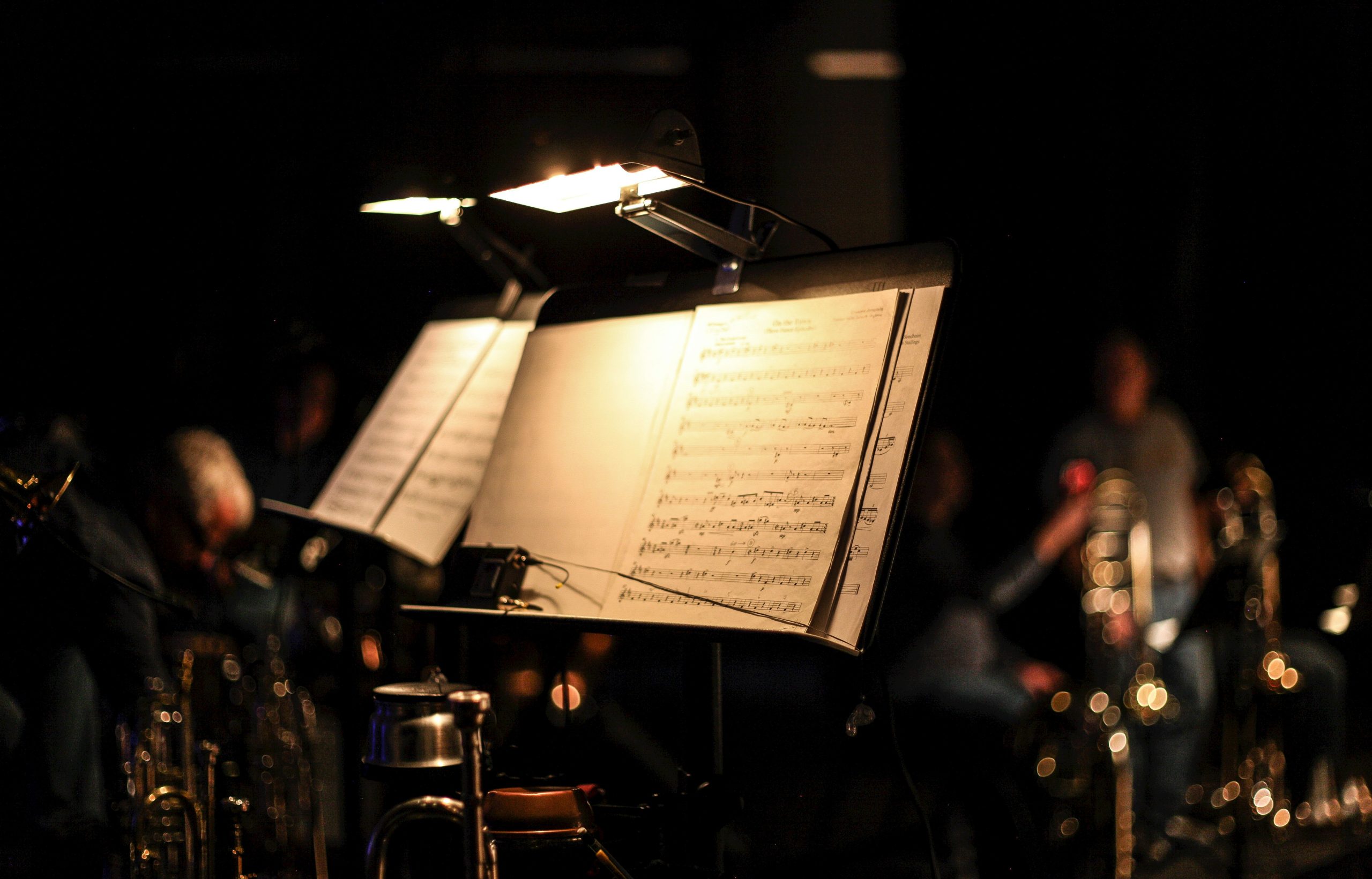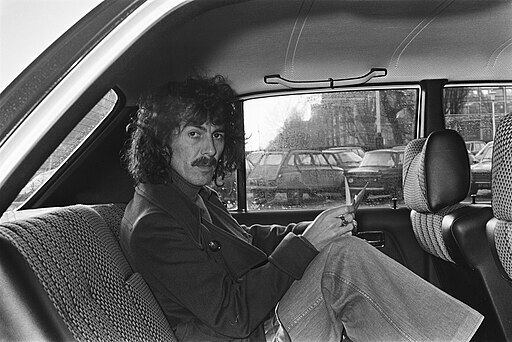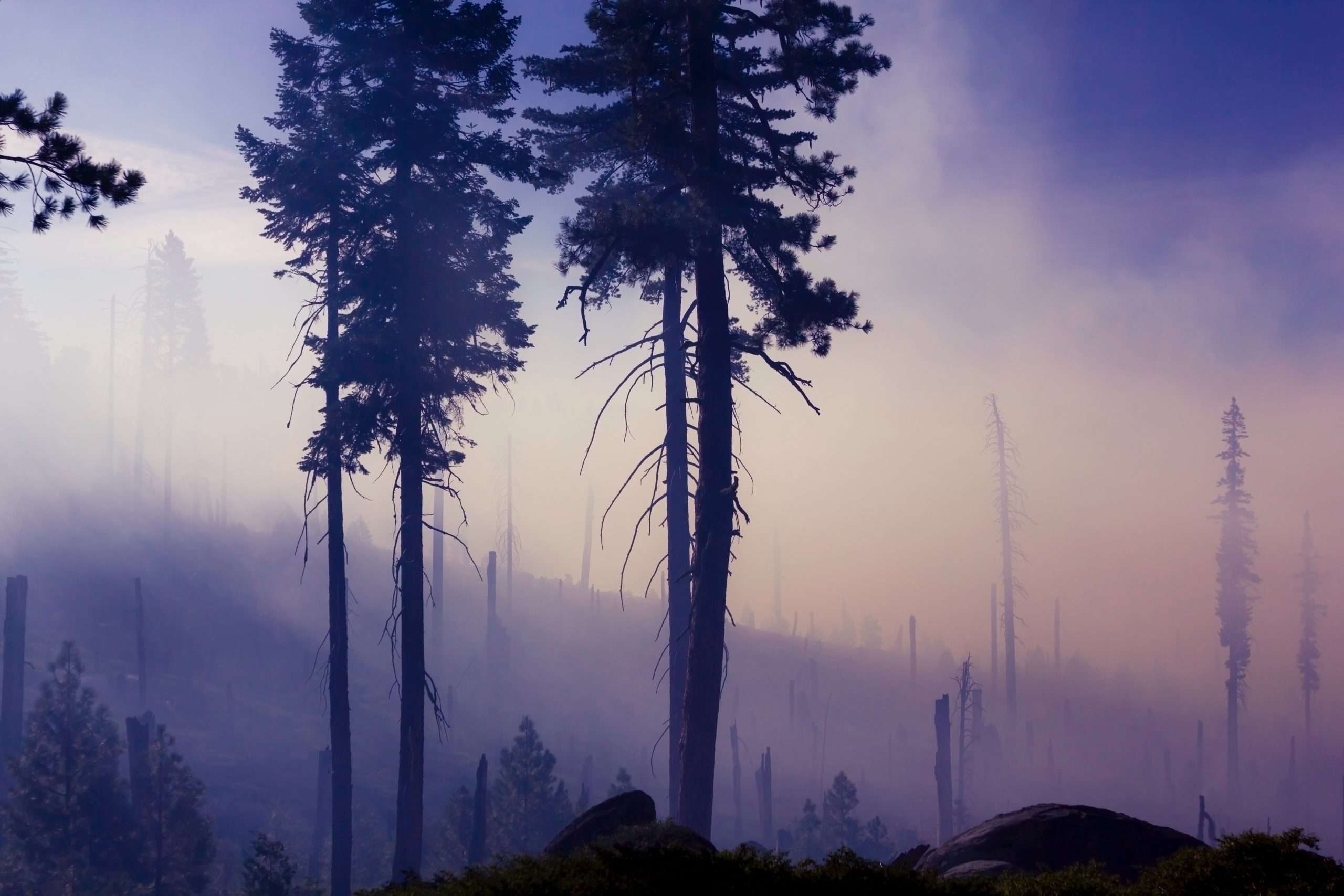Craft
Common Time: Notes on Music and Fiction
Ho

How do we write about music in fiction? Or, to put it another way, what can the writer express about music and what remains inexpressible?
Writing about music is like dancing about architecture, the comedian Martin Mull once said. .
Do we describe it technically? Perhaps, but most readers aren’t trained musicians and will get bogged down in a passage full of music theory terms:
After having played the first four bars two beats G minor two beats C seventh, every bar since they’d sat down, they suddenly found themselves ascending by half tones every bar, creating an entirely new harmonic base upon which they improvised in brand-new scales. G minor C seventh, A-flat minor D-flat seventh, A-flat minor D seventh, B-flat minor, E-flat seventh, and then a quick little half-tone figure to come out exactly right on F “undefined” dominant seventh. It was so exciting.
That’s from Frank Conroy’s Body and Soul, an old-fashioned kunstlerroman –a novel about the growth and maturation of an artist, in this case a pianist-composer who straddles the jazz and classical worlds .Conroy’s novel, a shaky piece of work written after decades of a legendary writer’s block, manages to be an object lesson in how not to treat music in fiction. The book alternates passages of offputtingly dry technical descriptions with dialogue right out of the golden age of Hollywood:
I wish the maestro was here for this. He would have — …Listen, Claude. This is brilliant. I’m not kidding you. Brilliant.
Does the novelist bring the music to life by describing the impressionistic reactions of its listeners? This is the technique of E.M.Forster in that famous passage about Beethoven’s Fifth in his novel, Howards End:
It was as if the splendour of life might boil over and waste to steam and froth. In its dissolution one heard the terrible, ominous note, and a goblin, with increased malignity, walked quietly over the universe from end to end. Panic and emptiness!
Or does the writer of fiction try to mimic the music with the music of his own prose? If he’s writing about jazz, for example, does he try to make it, you know, improvisational:
And then glory hallelujah he’s jumping in and out of the chords shouting and saving souls like a preacher then his embouchure drenched in spit he’s moaning baby oh please oh please on his knees like every pleading rejected lover and then he’s channeling all the pain of the African Diaspora all the funk of the Middle Passage the failing bowels the rotting teeth of the chained slaves then on his dumbfounded clueless audience of sharp-nosed Charlies and Charlettes he flips the script spraying them with a sound from his horn harsh and powerful and relentless as one of Bull Conor’s hoses..
A little bit of this goes a long way.
The best evocation of music in fiction I’ve found is in Geoff Dyer’s series of portraits of jazz greats, But Beautiful. Rather than making the mistake of trying to mimic the sound of jazz in his prose, Dyer describes the personalities that gave rise to the music, so we go back to the music with a heightened sympathetic understanding. Here is how Dyer describes Duke Ellington, as seen by one his worshipful fellow musicians:
Abruptly the car was filled with the roar of the road and the chill of the night and he was startled to realize he had been on the verge of nodding out. Within seconds the car was full of chisel-cold air.
–Hey, Duke, close the window, I ain’t sleepy no more, said the driver, glancing at the man in the passenger seat.
–Sure you’re OK, Harry?
Duke hated the cold as much as he did and needed only this assurance to wind up the window. The dry toasty warmth you got in a car with the windows shut tight, that was his favorite kind of heat in the world. Duke had said many times that the road was his home and if that was true than this car was his hearth. Sitting up front with the heater on high and the cold landscape slipping by — to both of them that was like sitting in armchairs in an old cottage and reading books around an open fire, snow falling outside.
Look at that beautiful simile, how it caps the paragraph and it arises so naturally from the commonplace phrase,’the road was his home.’ Without directly alluding to the music, you get the sense that the sentiment ‘the road was his home’ is what produced such classics of locomotion as ‘Take the ‘A’ Train’ and ‘Caravan.’ Also Ellington’s personality-musical and otherwise-comes through — his unshakeable, and very American, optimism and self-regard.
What reading Dyer makes clear is that one cannot really write about music; one can only write around it.
But to write around music still gives the novelist plenty to write about. Music is full of fascinating subcultures: there is the world of punk, with its emphasis on a kind of ideological purity and its sick humor; jazz with its virtuosity and its love of ‘cutting’, i.e. showing up another musician with your superior technique; the world of classical music with its ossified repertoire, antique performances practices, and Freud –era neuroses and compulsions to match. Most musical subcultures, from bluegrass to jazz to metal, have their own version of ‘cool’, of showing as little outward emotion in the presence of others as possible, which makes each small gesture fraught with significance and a perfect study for the novelist who is willing to unpack them.
In Jennifer Egan’s recent novel, A Visit from the Goon Squad, Bennie, a fading music executive, decides to pay a visit to Stop/Go , an act he signed at the height of the female rocker craze in the Nineties. The band, two sisters both pushing thirty who live at home with their parents, has clearly had its day, and so, it’s implied, has Bennie. Bennie is divorced, middle-aged, depressed and –rather symbolically for someone in the gold-record obsessed popular music business- is fighting a lack of sex drive by sprinkling gold flakes into his coffee.
Because popular music isn’t, like classical music, based on a clear set of performance standards and technical competencies, there’s something innately mysterious and irrational about why certain performers succeed and others don’t. The producer who can pick those successes again and again, Bennie imagines, has something deeper than an eye for talent — he has a sixth sense for intuiting the zeitgeist which is the central stream of life.
Bennie shows up at the sisters’ house, unannounced. Their desperate eagerness is palpable. They begin to play:
Then the sisters begin to sing .Oh, the raw, almost-threadbare sound of their voices mixed with the clash of instruments-these sensations met with a faculty deeper in Bennie than judgment or even pleasure; they communed directly with his body, whose shivering , bursting reply made dizzy. And here was his first erection in months.
All is bliss until Bernie remembers that someone in his office had, behind his back, called him a ‘ hairball.’ The spell, and the direct line to the happiness of the past, is broken:
The sisters were screaming, the tiny room imploding from their sound, and Bennie tried to find again the deep contentment he’d felt just a minute ago.
Like the poet, the novelist expresses the relationship of music to our sense of time.
A Visit from the Goon Squad is about capital “T” Time: the novel’s jumbled, backward and forward chronology acknowledges that time is both linear and circular. As in Proust, music, like almost nothing else, makes the past present. Or as Philip Larkin, the great modern poet of time, put it in Reference Back, a poem about a reverie inspired by a recording of King Oliver’s Riverside Blues:
Truly, though our element is time,
We are not suited to the long perspectives
Open at each instant of our lives.
They link us to our losses
* * *
John Broening’s Column Note.
— John Broening is a chef and writer based in Denver, Colorado. His work has appeared in the Baltimore Sun, the Baltimore City Paper, Gastronomica, Edible Front Range, and the Denver Post, for whom he writes a weekly column about food.
Image source: http://benschlitter.com/









